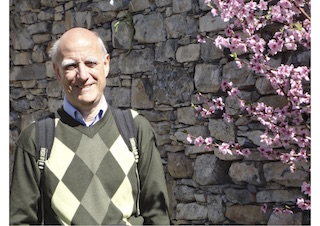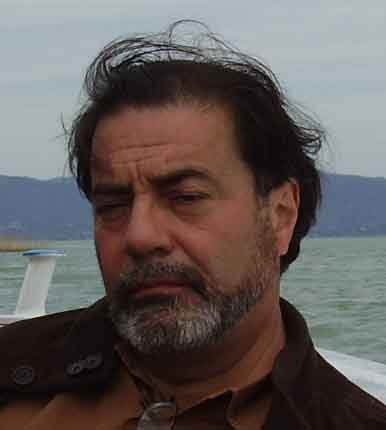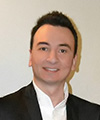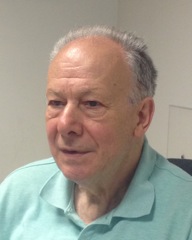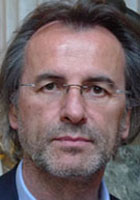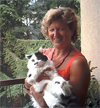Studying at the University of Verona
Here you can find information on the organisational aspects of the Programme, lecture timetables, learning activities and useful contact details for your time at the University, from enrolment to graduation.
Academic calendar
The academic calendar shows the deadlines and scheduled events that are relevant to students, teaching and technical-administrative staff of the University. Public holidays and University closures are also indicated. The academic year normally begins on 1 October each year and ends on 30 September of the following year.
Course calendar
The Academic Calendar sets out the degree programme lecture and exam timetables, as well as the relevant university closure dates..
For the year 2007/2008 No calendar yet available
Exam calendar
Exam dates and rounds are managed by the relevant Humanistic Studies Teaching and Student Services Unit.
To view all the exam sessions available, please use the Exam dashboard on ESSE3.
If you forgot your login details or have problems logging in, please contact the relevant IT HelpDesk, or check the login details recovery web page.
Should you have any doubts or questions, please check the Enrollment FAQs
Academic staff

Avezzu' Guido
 guido.avezzu@univr.it
guido.avezzu@univr.it
 augusto.barbi@univr.it
augusto.barbi@univr.it
 evita.calabrese@univr.it
evita.calabrese@univr.it
 alberto.cavarzere@univr.it
alberto.cavarzere@univr.it

Chiecchi Giuseppe
 giuseppe.chiecchi@univr.it
giuseppe.chiecchi@univr.it
 +39 045802 8117
+39 045802 8117
Daneloni Alessandro
 alessandro.daneloni@univr.it
alessandro.daneloni@univr.it
 045 8028113
045 8028113

Mastrocinque Attilio
 attilio.mastrocinque@univr.it
attilio.mastrocinque@univr.it
 +39 045802 8386
+39 045802 8386
 linda.napolitano@univr.it
linda.napolitano@univr.it
Nardi Maria Stella

Pozzo Riccardo
 riccardo.pozzo@univr.it
riccardo.pozzo@univr.it
 +390458028053
+390458028053
Rossetti Maria Gabriella
 gabriella.rossetti@univr.it
gabriella.rossetti@univr.it
 +39 045802 8106
+39 045802 8106
Schiavo Piera
 piera.schiavo@univr.it
piera.schiavo@univr.it
 +39 045802 8112
+39 045802 8112
Sellan Giuliana
 giuliana.sellan@univr.it
giuliana.sellan@univr.it
 +39 045 802 8373
+39 045 802 8373
 giorgia.totola@univr.it
giorgia.totola@univr.it
 gianmaria.varanini@univr.it
gianmaria.varanini@univr.it
Study Plan
The Study Plan includes all modules, teaching and learning activities that each student will need to undertake during their time at the University.
Please select your Study Plan based on your enrollment year.
The Study plan 2007/2008 will be available by April 2nd. While waiting for it to be published, consult the Study plan for the current academic year at the following link.
Legend | Type of training activity (TTA)
TAF (Type of Educational Activity) All courses and activities are classified into different types of educational activities, indicated by a letter.
History of Ancient Philosophy (p) (2008/2009)
Teaching code
4S01229
Teacher
Credits
6
Also offered in courses:
- History of Ancient Philosophy (p) of the course Bachelor’s degree in Humanities
- History of Ancient Philosophy (p) of the course Degree in Arts and HUmanities
- History of Ancient Philosophy (p) of the course Degree in Philosophy
- History of Ancient Philosophy (i) of the course Degree in Cultural Assets
- History of Ancient Philosophy (i) of the course Masters in Art History (until 2007-2008)
Language
Italian
Scientific Disciplinary Sector (SSD)
M-FIL/07 - HISTORY OF ANCIENT PHILOSOPHY
Period
Primo semestre dal Sep 29, 2008 al Jan 17, 2009.
Location
VERONA
Learning outcomes
Beyond offering a general picture of authors and schools within the Ancient Philosophy, the course aims at teaching to use the proper philosophical terminology (nearly all deriving from ancient Greek). Also it aims at teaching the critical use of an original philosophical text, for acquiring basic philosophical matters and concepts.
Program
Prerequisites: Surely a previous knowledge of the history of Greek and Latin philosophy (from VIth Century b.C. to 529 a.D.) allows to work easier within this scientific field: however it is not compulsory. The same can be said as to ancient Greek language. Better,an attention to lexical research and an interest in a critical reading of philosophical texts are very useful.
Contenuto del corso: “Eros’ power. Reflections on the so-called theory of Platonic love”. The course aims at focussing from a philosophical perspective the well known and often misunderstood ‘theory of Platonic love’. We will read and reflect upon the related texts (first on the myths of androgynous and of Eros’ birth in the Symposium, as well on the myth of the winged chariot in the Phaedrus). We aim at showing that this ‘theory’, in its original version, with regard both for the form expressing it (myth), both for its anthropological and ontological content, is not a simple ornament of Plato’s philosophy: it really agrees with the basis of his thought (theories of ideas and of soul), it advances important points of the Western anthropology and also includes some interesting revivable features.
Teacing methods: The course will be carried on by frontal lessons, with direct reading of the texts and following discussions. Therefore attendance at classes will be very useful and desirable, though obviously not compulsory.
The same program is valid for students who cannot attend lessons; nevertheless, they must get in touch with the teacher, in order to receive indications on adding texts, whose reading will compensate for lacking attendance: these texts will be agreed for every student, with regard to his previous knowledge, curriculum and interests.
Examination Methods
Some oral questions will be put to the student; he will be invited to read and comment some passages of the original texts already read together during classes. As to the monographical part of the course, the student can choose also to write a brief paper (5-10 pp.) on some subjects discussed together, or on some passages read together during classes: this relation will be orally discussed during the exam.
Type D and Type F activities
Training offer to be defined
Career prospects
Module/Programme news
News for students
There you will find information, resources and services useful during your time at the University (Student’s exam record, your study plan on ESSE3, Distance Learning courses, university email account, office forms, administrative procedures, etc.). You can log into MyUnivr with your GIA login details: only in this way will you be able to receive notification of all the notices from your teachers and your secretariat via email and soon also via the Univr app.
Student mentoring
Linguistic training CLA
Gestione carriere
Practical information for students
Documents
| Title | Info File |
|---|---|
|
|
pdf, it, 325 KB, 02/05/23 |
|
|
pdf, it, 212 KB, 02/05/23 |
|
|
pdf, it, 131 KB, 02/05/23 |
Graduation
Documents
| Title | Info File |
|---|---|
|
|
pdf, it, 99 KB, 13/10/23 |
|
|
pdf, it, 101 KB, 10/04/24 |






